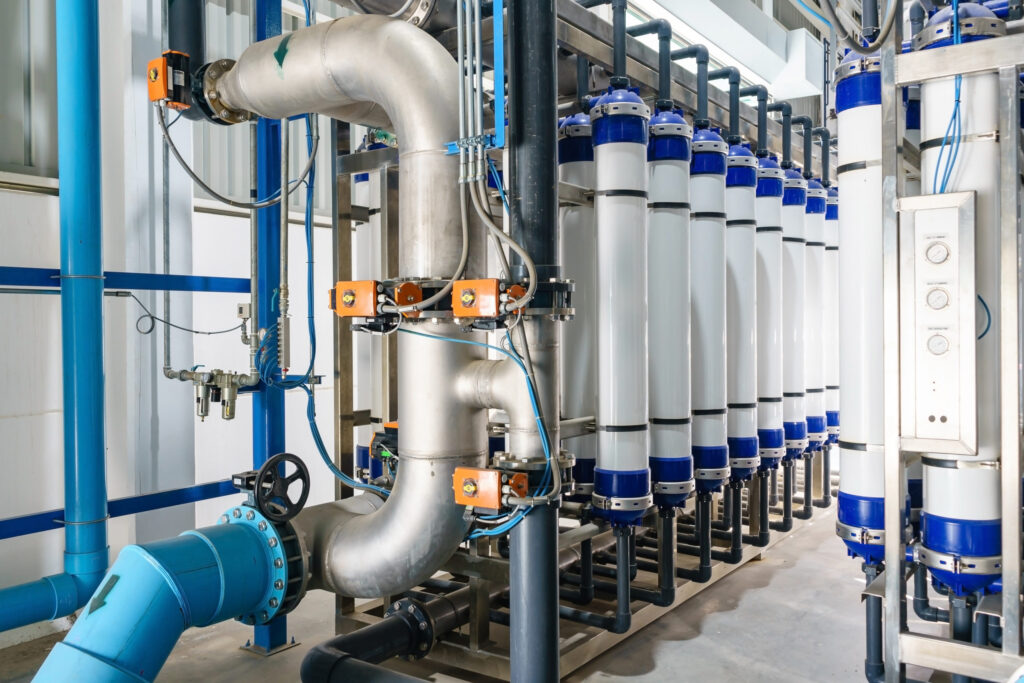3S-GSC
MICRO MEMBRANE FILTRATION

Water Treatment
MICRO MEMBRANE FILTRATION
Microfiltration (MF) is a membrane filtration process that uses a membrane with larger pore size compared to ultrafiltration (UF) and nanofiltration (NF). Typically, the pore size ranges from 0.1 to 10 microns. MF is used for the separation of suspended solids, bacteria, and other particles from a liquid stream.
The membranes used in MF are made of materials such as ceramic, polymeric, or metallic materials. The choice of membrane material depends on the application and the properties of the fluid being filtered. MF is commonly used in applications such as dairy processing, beverage production, and wastewater treatment.
The MF process works by applying a pressure difference across the membrane. The fluid to be filtered is forced through the membrane, leaving the particles and larger molecules behind. The filtered liquid passes through the membrane and is collected on the other side. The retained particles and molecules are either collected in a separate stream or are periodically removed from the membrane surface
MF is a relatively simple and cost-effective process compared to other membrane filtration processes, such as UF and NF. It is also energy-efficient, as it requires relatively low pressure to operate. However, it is important to note that MF does not remove dissolved ions or molecules from a fluid stream, as the membrane pore size is too large to allow for their separation. If dissolved ions or molecules need to be removed, UF, NF or reverse osmosis (RO) may be required.
COME & TRY OUR SERVICES
contact us for more detail
